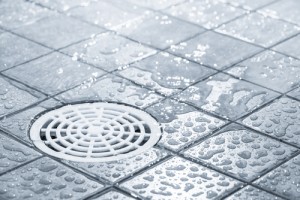 Hot water to wash grease down the drain? Lemons to freshen up a smelly garbage disposal? A brick in your toilet tank to lower your water bill?
Hot water to wash grease down the drain? Lemons to freshen up a smelly garbage disposal? A brick in your toilet tank to lower your water bill?
Classic plumbing myths that are not only false but can cause damage and cost you money.
In this post, we’ll debunk these old wives’ tales and more.
Melting the Fat Away
Let’s start with our first myth. That hot water dissolves grease and helps it to flow down the drain.
Not true.
Heated fat will actually do the opposite, sticking to your pipes and creating a layer of oily grime that slowly chokes your pipe over time. Hot water mixed with grease will cause clogs, not prevent them.
Solution: Ideally, fats & oils should be disposed of in the garbage can and not the sink. If you do plan to pour them down the drain, always run cold water so that the grease congeals and washes away in it’s solid form.
And Now on to the Lemons
The smell of freshly squeezed lemons is absolutely wonderful – but there are two reasons why citrus in its natural state shouldn’t be used to freshen a stink garbage disposal.
- While pleasant, the odor is temporary. Instead of dealing with the root cause, you’re simply masking a problem that will return in a day or two.
- Lemon juice is acidic and can corrode through the blades or moving parts of your disposal unit.
Solution: Soap & water. You can also save up your eggshells from breakfast and run them through the grinder to clean debris off the blades.
More Fun with Garbage Disposals
- Here’s a doozy. Run ice through your disposal to sharpen the blades. Nope, that doesn’t hurt anything but it certainly won’t do any sharpening.
- All food waste is safe to go through the garbage disposal. Sure, only if you want to damage blades and cause clogs! Hard materials such as bone should never go into your disposal and tough rinds and peels (banana, orange, watermelon) shouldn’t either.
Things that Don’t Belong in the Tank
Back to this idea about keeping a brick in the toilet tank to cut down on water usage. Over time, as the brick deteriorates the particles can damage your flapper and cause a leak.
One too many bricks will displace so much water that you might not get a full flush – leading to potential clogs and double flushing.
But worse than a brick are chlorine tablets. This tall tale meant to keep your bowl smelling fresh will lead to rusted out toilet parts in less than a year.
Dreaded Wet Wipes
Every plumber’s worst nightmare.
Homeowners intrinsically believe that wet wipes, paper towels, makeup removal pads and tampons are safe to flush down the toilet.
You may get away with it for a while but all of these items will eventually cause a backup if you push your luck.
Watch Out! Exploding Water Heaters
While a banging hot water heater can certainly give you one heckuva fright, the truth is that no matter how loud it gets there’s no danger of explosion.
The rumbling and banging is caused by hard water sediment settling on your heating element. As hot water is prevented from rising by the calcium & lime deposits air bubbles form and rise to the top. These bubbles expand and cause the tank to pop.
While not dangerous, a hot water heater that is making a lot of noise is much less efficient and can use more gas or electricity to heat the same amount of water.
Solution: Drain your hot water heater periodically to flush sediment. You may need to repeat several times to remove enough from the tank for the noises to stop.
